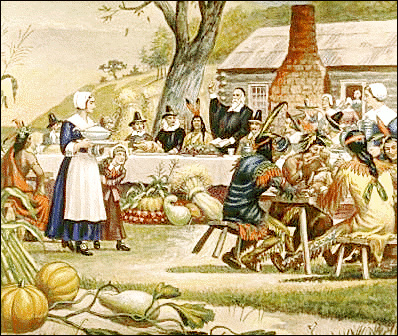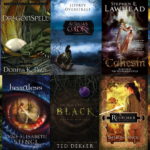Give Thanks for Fantastic Stories, Even If They Are ‘Purely For Fun’
“Does a poem about a rose, with no mention of God or any direct indication of Truth, not glorify God?”
Short answer: yes, absolutely such a poem can glorify God. Even better: we have direct Scriptural evidence for this idea, and for this we can thank God for these stories. Next: the longer answer.1 In our recent Fantastical Truth episode, we had interviewed Seventh City author Emily Hayse. Then Zack Russell and I took this podcast question from listener David Corder:

I enjoyed this episode2 about C.S. Lewis and his thinking in regards to creating story, and how it was talked about how you don’t “preach” in a story. Doing so doesn’t make it a story anymore, as you two pointed out.
But I find myself a little confused. I agree that fiction is a medium for conveying Truth, but I also got the impression from this podcast that that is all it should be used for, especially in terms of Christian creatives, which makes me question some of the work I write. Some of my fiction is just purely for fun, with no intention to have any subtle points directed towards God, which I don’t think necessarily is a bad thing. Does a poem about a rose, with no mention of God or any direct indication of Truth, not glorify God?
In reply, Zack and I shared our thoughts about, first, how creative works such as stories glorify God based on biblical texts and themes, and second, how Christians respond to these joys with thanksgiving to our Creator. Here’s a transcript, edited for clarity, of what we said.
Do ‘purely for fun’ stories glorify God?
Zack: This is a great question. What do you think, Stephen?
Stephen: It is. It is. And I think that example of the rose is a perfect lead in, too.
You could get a whole podcast series out of just this question, about what glorifies God. Is it teaching? Is it exposition of doctrine? Does it have to be a sermon or something nonfiction in order to bring the most glory to God?
Let’s say that God’s glory is the 100 percent level. And fiction is 20 percent glorification of God, if you’re not sinning any more than usual while doing the thing. But maybe nonfiction or sermons are 50 or 60 percent?
Yet God himself, when God is giving his people in the Old Testament specific directions for building the Tabernacle—that’s certainly an instrument for glorification of God, where the people would be doing sacrifices and following ritual law in order to show themselves who God is, and who they are by comparison, and what they need from God. They need their sins to be carried away in the form of animal sacrifice. They need to show that they know that God is perfect and they are not.
God is teaching through these things, nonfiction teaching. But he’s also building in symbols in the construction of the Tabernacle, including these floral designs and these sculptures of fantastic creatures. Even the minerals included and the tapestries and the textures—all of those implicitly point to who God is, and the wonders of his creation. Some commentators say that the Tabernacle that is prescribed in the book of Exodus, after the Ten Commandments, is actually meant to be a reflection of Eden, the garden of Eden as it once was. All its imagery of God’s creation there, the minerals, the animals, the plants, the imagery of the skies, the seas, and the land—all of that is meant to reflect God’s original creation.
 So it is, I think, with a story. A poem about a rose doesn’t need to mention God in order to bring glory to God.
So it is, I think, with a story. A poem about a rose doesn’t need to mention God in order to bring glory to God.
The person who is bringing glory to God is you—if you’re writing that poem about a rose.
As we like to say, this is not a writers’ podcast. There are are plenty of other resources designed to help you as a creator, if you are a creator, do that in a way that most glorifies God, with particular attention to excellence in craft.
But as fans, we can appreciate that fact that a Christian author who wants to be in the word, wants to be in the gospel: his or her chief end, her highest purpose, is not just to teach. Not just to evangelize. But as we were talking earlier with Emily Hayse, we want to give a taste through stories. To give an idea, to communicate this truth directly to the imagination. It’s a shortcut to the heart, to help us feel and experience, to “taste and see” that God is good. A poem about a rose can do that. And a ‘purely for fun’ story can do that. In that case, you still have a point. You still have a purpose as a human, as a citizen, in making that story. That purpose, as the old confession says, your chief end is “to glorify God and enjoy him forever.”
Do stories that don’t mention God glorify him less?
Zack: I think that’s a great answer, Stephen.
I’m going to sort of answer a different question that is just the mirror opposite of this question: Is it okay to read a novel that has no mention of God or any direct indication of truth?
Stephen: Absolutely.
Zack: Does that glorify God?
Stephen: If I could temper that a little bit—I think that most Christians, certainly most people responding to this podcast, would say: “Yes.” If it’s a binary answer, yes or no, is it okay? they’d say, “Yes.” But at the back of our minds, we would have that faint suspicion about glory percentages.
Wouldn’t it be 5 percent better to read a story that has “God-talk” in it? That drops in a “John 3:16” or at least has some reference to deity?
Whereas if I go over here and just read a “Calvin and Hobbes” book, there’s no mention of God in there. Does that bring less glory to God?
I think that’s more of the question. It’s a question of “more or less,” rather than “yes or no.”
Zack: Yeah. I have a very good friend who refers to fantasy novels as a “guilty pleasure.” I think about that all the time. I’m not going to “out” this friend! But is that how we look at books, whether we’re reading them or writing them? Do we look at them as kind of a frivolous enjoyment?
I would say: no. Here’s why I would say that.
As a reader, I don’t think the value of a book comes from how much truth is in it, or just how much truth is in it. I think beauty and goodness also point to our Creator. Romans 1 talks about this: how the invisible qualities of God have been clearly seen by what has been made, by what is visible. I think that’s what a lot of stories do so well. A story makes the intangible experiences of being a human, it makes that tangible. It shows you what sin looks like. It shows you what fear and hope and desire and redemption can look like.
I don’t know if we need to rename our podcast to the “Fantastical Truth, Beauty, and Goodness” podcast. But this is a good point. We don’t just have to find the truth in a story. We can find the other aspects that, like in Romans 1, point in their own way toward God.
When you look at a sunset, does the sunset have “John 3:16” written on the sky? Hopefully not. You may need to talk to your doctor if you see that.
A sunset in its own way points to God, but in a very different way than “truth from the mouth of babes” would speak to God.
I think that it’s totally fine to glorify God in different ways, in what we write and what we read.
 How do Christians thank God for stories?
How do Christians thank God for stories?
Stephen: This theme is all throughout Scripture.
Of course, Scripture doesn’t speak specifically to novels or poems, or how specifically Christians are to enjoy them. But the idea—as we’ve explored multiple times in this podcast, and as I hope to explore the rest of my life—the idea in Scripture is that God has given us these very human gifts for a reason. Those didn’t arise by accident. They certainly weren’t hacked into the universe by the Devil or some malevolent human sin-presence there.
The idea is that God has given us imagination to do these things as a means of reflecting God back to him.
That’s glorifying God. That’s his idea, not our idea.
Therefore, any time Scripture is talking about gifts and the redemption of gifts of God, things like food, or holidays, or friendship, or fellowship, building things, making culture, tilling the earth, turning grapes into wine, baking food, bread, any of those things—fiction, I think, art, culture, storytelling—all of that falls into the same category of cultural goods that God has given to people.
In that case, that is why I apply the wisdom of the apostle Paul in 1 Timothy chapter 4. Here, in a letter that Paul is writing to a younger pastor—who’s having a lot of trouble with people who want to be so spiritual—then as now, the apostle Paul says to Timothy: “Hey, watch out for the people who are going to question the intrinsic goodness of God’s gifts. They’re not actually holier than thou. They’re the ones who are actually missing the purpose of these gifts.” And the apostle Paul writes:
For everything created by God is good, and nothing is to be rejected if it is received with thanksgiving, for it is made holy by the word of God and prayer.
1 Timothy 4:4–5
There’s a word there, too. It’s going to be trending here in a couple of weeks after we record this: thanksgiving.
Maybe we need to say more about that.
That is how thanksgiving works with stories. You don’t just take them and say, “Well, thanks God.”
There is a specific process there, that the apostle Paul alludes to. A gift of God is “made holy by the word of God and prayer.”
The word: God’s word, reading the Bible, Scripture study. And prayer.
Those are the two things that we suspect are more important than the other things. Yet here we see that, yes, those practices are more important, but because it is through those things that God is working in us to, in some way, redeem these gifts, make them holy for our enjoyment and for the glorification of God.
- I’m blessed to break my incidental SpecFaith article “fast” to bring you this. ↩
- He refers to Fantastical Truth episode 35: Did C. S. Lewis Say It’s ‘Pure Moonshine’ to Create Stories that Teach Christian Truth? We excerpt David’s longer note both in the podcast episode and here. ↩









































